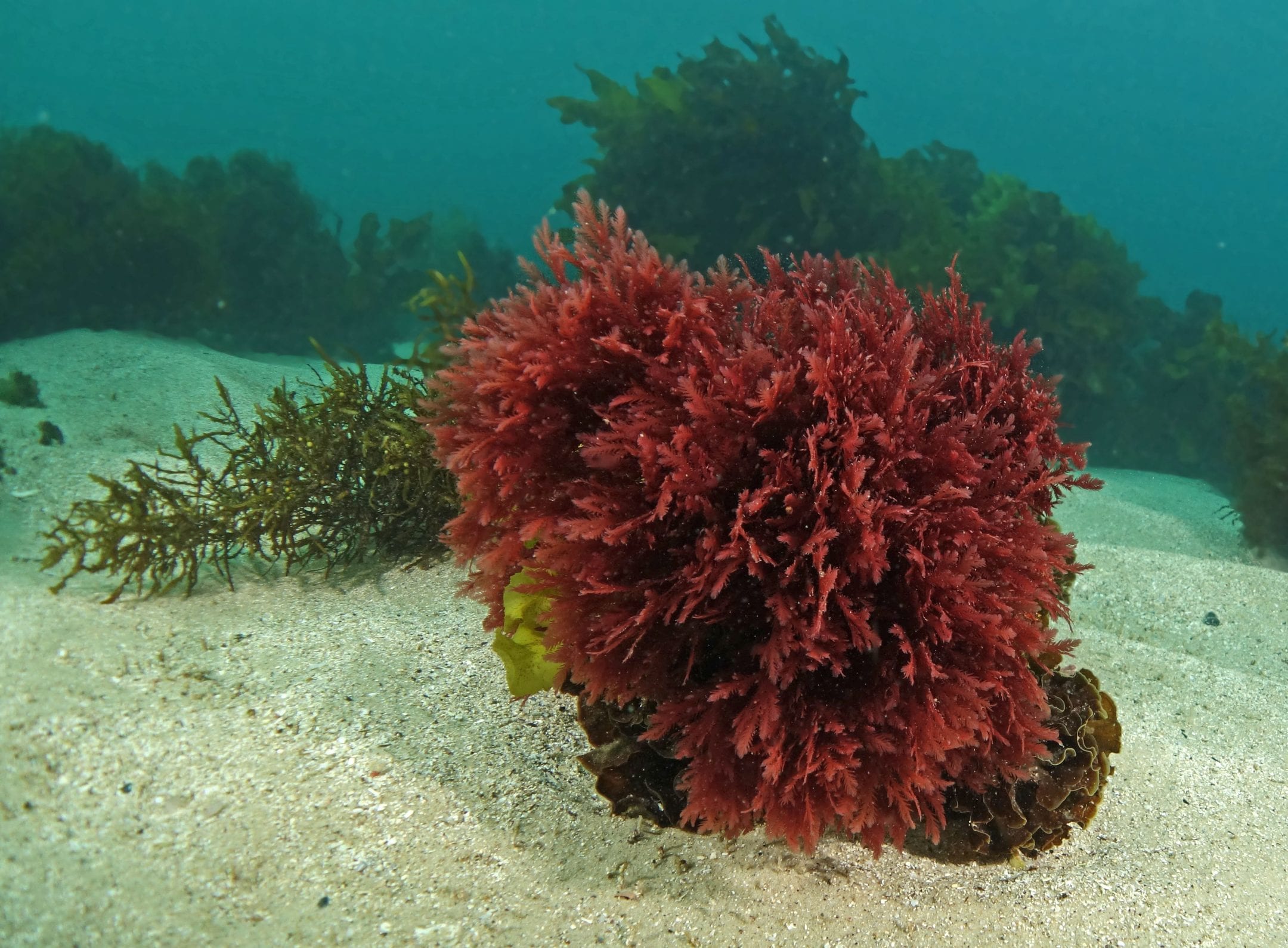Red algae protects itself from bacterial infection by exuding compounds that inhibit biofilms.
The red seaweed Delisea pulchra effectively avoids a broad spectrum of bacterial infections without breeding any bacterial resistance to its defensive chemistry. Molecules known as furanones produced by the seaweed bind readily to the specific protein-covered bacterial receptor sites that receive the bacterial signaling molecules (N-acyl homoserine lactone) that normally induce surface colonization. This method of blocking bacterial communication effectively prevents bacteria from forming groups and becoming virulent, but does not physically kill them.









